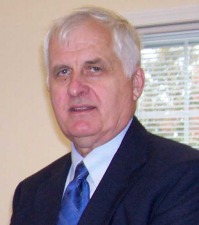On networking
PRIME: Can you give any tips on how boomers can use networking to bridge the age barrier?
Doff: Networking is simply connecting with people. You can do this at events -- there are lots of networking events these days.
Try going to one with the goal of meeting three people and learning more about them. Dale Carnegie suggested that the way to seem most interesting is to be interested in others " to ask questions. As you learn more about others, they will be interested in learning more about you.
You can also learn more about how to do informational interviews. Many people have never heard of these. They are free and incredibly valuable as a way of learning about a company or industry and getting in the door.
Nichols: Boomers have, on average, had a long and successful career and hopefully, most have developed a good network through their career. that, hopefully, will help them with networking.
On bridging the age gap
PRIME: Do you have some tips to pass along to boomers on how they can lessen the affects of the age difference in the workplace? Or, to put it bluntly, how not to look and act old when dealing with younger colleagues!
Doff: Try to learn more about current trends, ideas, and technologies. But don t make a big deal out of knowing about this stuff.
You can joke about it with friends, but be casual about it with younger colleagues.
Take a look at your wardrobe and try to look current.
Be curious about your colleagues and what they are interested in. Take them seriously. Find out what they are watching on TV and at least know about the shows. Again, don't show off about what you are learning.
In order to learn new things, it sometimes takes being vulnerable or being willing to not know everything.
The irony is that the people who are willing to try new things and be vulnerable are often stronger as a result. As we get older, it can feel more difficult to do this. Children are great role models for us in this regard " imagine a toddler learning to walk - they are not afraid to look foolish or to make mistakes. They get right back up and keep trying. As we get older, we need to remember some of this humility, vulnerability, and passion to keep trying and keep learning.
Perhaps it doesn't matter how old we are, but more how old we feel. If we are willing to keep growing, we are still in the game!
Nichols: Again it goes back to preparation and understanding the organization. Once hired culture dictates the values and beliefs of the organization ... it is best to understand that and support the culture.
Contact Dave Nichols at 401-637-4595; www.qualitytransitions.net.net or by e-mail: dave@qualitytransitions.net
Contact Jeff Doff by e-mail at: jeffdoff@yahoo.com or 401-651-1400


